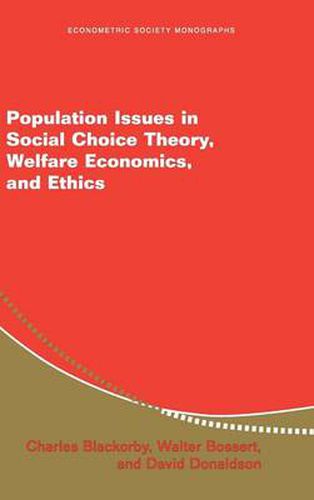Readings Newsletter
Become a Readings Member to make your shopping experience even easier.
Sign in or sign up for free!
You’re not far away from qualifying for FREE standard shipping within Australia
You’ve qualified for FREE standard shipping within Australia
The cart is loading…






This book presents an exploration of the idea of the common or social good, extended so that alternatives with different populations can be ranked. The approach is, in the main, welfarist, basing rankings on the well-being, broadly conceived, of those who are alive (or ever lived). The axiomatic method is employed, and topics investigated include: the measurement of individual well-being, social attitudes toward inequality of well-being, the main classes of population principles, principles that provide incomplete rankings, principles that rank uncertain alternatives, best choices from feasible sets, and applications. The chapters are divided, with mathematical arguments confined to the second part. The first part is intended to make the arguments accessible to a more general readership. Although the book can be read as a defense of the critical-level generalized-utilitarian class of principles, comprehensive examinations of other classes are included.
$9.00 standard shipping within Australia
FREE standard shipping within Australia for orders over $100.00
Express & International shipping calculated at checkout
This book presents an exploration of the idea of the common or social good, extended so that alternatives with different populations can be ranked. The approach is, in the main, welfarist, basing rankings on the well-being, broadly conceived, of those who are alive (or ever lived). The axiomatic method is employed, and topics investigated include: the measurement of individual well-being, social attitudes toward inequality of well-being, the main classes of population principles, principles that provide incomplete rankings, principles that rank uncertain alternatives, best choices from feasible sets, and applications. The chapters are divided, with mathematical arguments confined to the second part. The first part is intended to make the arguments accessible to a more general readership. Although the book can be read as a defense of the critical-level generalized-utilitarian class of principles, comprehensive examinations of other classes are included.